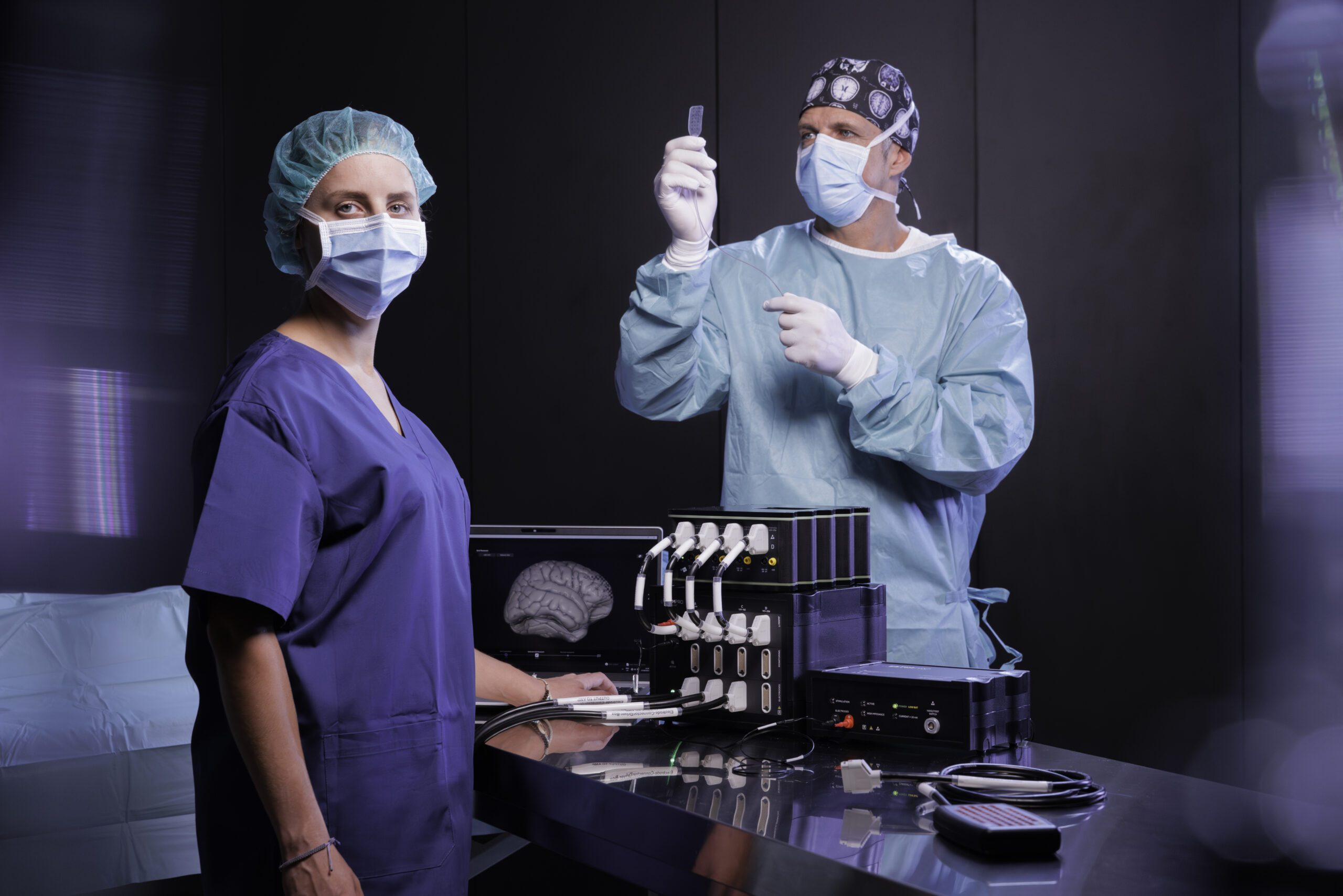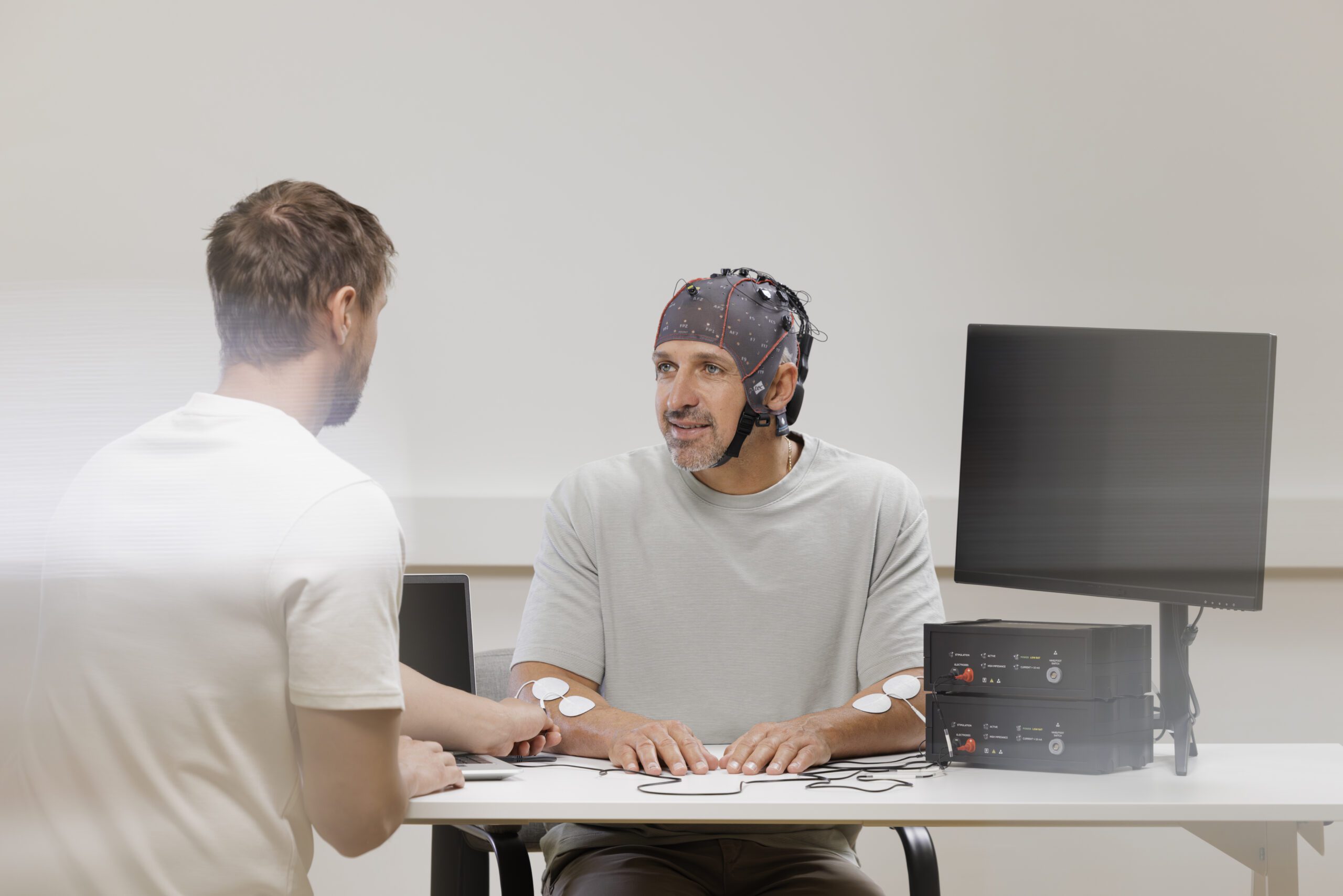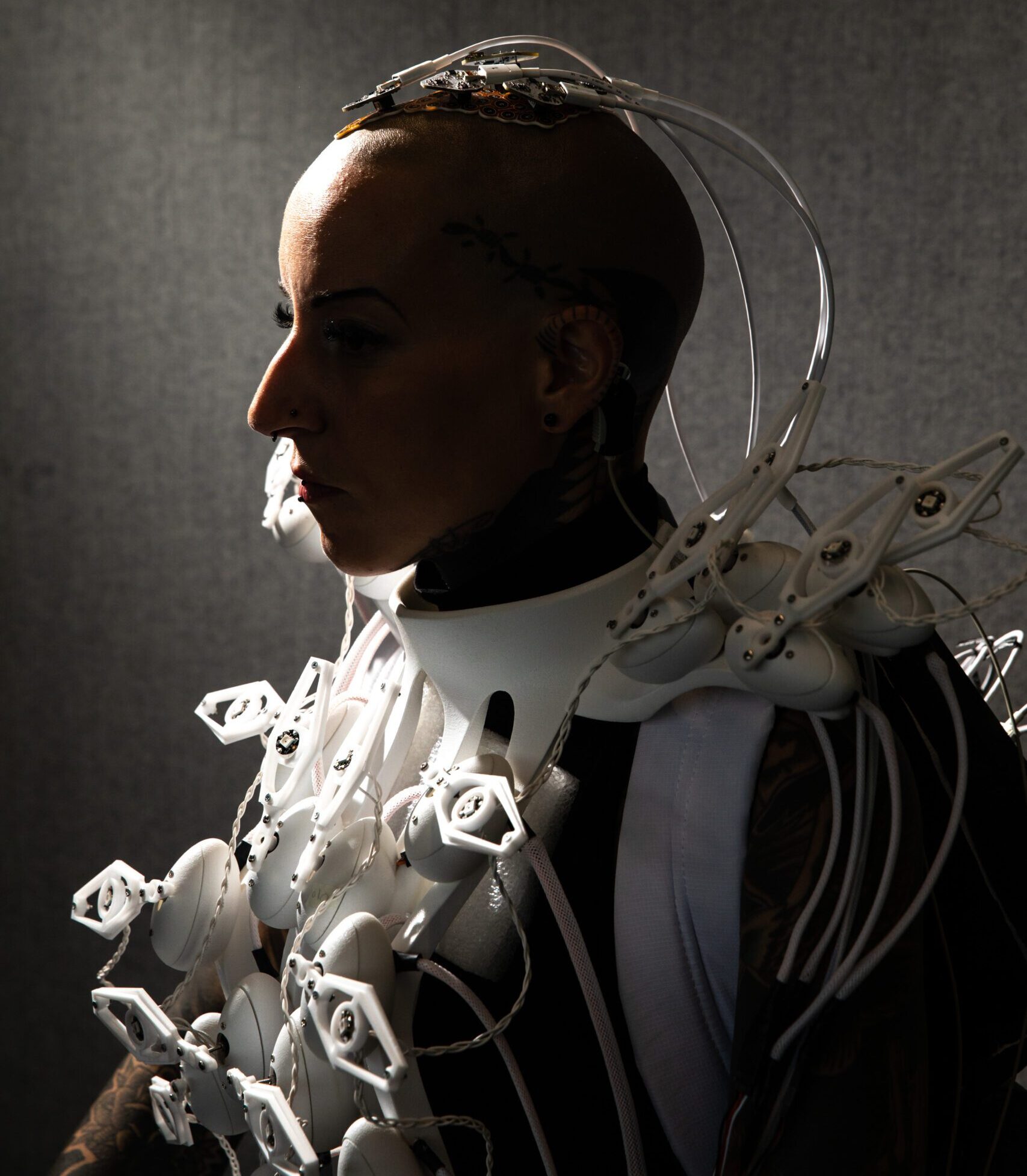
Brain-computer interface (BCI) technology is transforming the way humans interact with machines, offering groundbreaking applications in healthcare, communication, and beyond. Christoph Guger, a pioneer in neurotechnology and the founder of g.tec medical engineering, has spent over 25 years pushing the boundaries of BCI innovation. In this interview, he shares insights into his journey, the latest advancements in the field, and his vision for a future where BCIs could enhance human potential in ways once thought impossible.
Early Life and Educational Background
We were curious about Christoph Guger’s background, so we asked him to share something about his early life and educational qualifications.
Dr. Christoph: I have always been fascinated by the intersection of neuroscience, engineering, and human potential. From an early age, I was drawn to understanding how the brain works and how technology could be used to enhance its capabilities. This passion led me to pursue studies in biomedical engineering and neurotechnology, which ultimately led to the founding of g.tec medical engineering. Over the past 25 years, I have dedicated my career to advancing brain-computer interfaces (BCIs), helping people regain mobility, communicate, and explore new frontiers of human-machine interaction.
The Latest Advancements That Excite Christoph Guger
BCI technology is evolving rapidly. We wanted to know—what are the latest advancements that excite Christoph Guger the most?
Dr. Christoph: There are several groundbreaking developments happening right now, but a few stand out:
- Non-invasive, high-resolution EEG and ECoG BCIs are achieving accuracy levels previously thought to be possible only with implanted electrodes.
- BCIs for neurorehabilitation are helping stroke and paralysis patients regain motor function faster than ever before.
- Hybrid BCI systems combine EEG, AI, and real-time feedback to enhance both medical and consumer applications.
- BCIs for animals—we recently introduced the Unicorn BCI Core-8 for humans, dogs, and even horses, opening up entirely new research possibilities.
Transforming Medical Applications with Artificial Intelligence

AI is transforming various industries, including neurotechnology. We asked Christoph Guger how AI integration has changed the way BCIs function in medical applications.
Dr. Christoph: AI has revolutionized brain-computer interfaces by improving signal decoding, speed, and adaptability. In neurorehabilitation, AI-powered BCIs can now personalize treatments for patients based on their brain activity patterns, making recovery faster and more effective. Additionally, AI-driven algorithms help filter out noise, extract meaningful signals, and even predict seizures or neurological deterioration before they happen.
Standing Out in Neurotechnology
With multiple companies working in neurotechnology, we wanted to understand—how g.tec, under Christoph Guger’s leadership, differentiates itself in this space.
Dr. Christoph: g.tec is a pioneer in BCIs, offering high-performance, research-grade systems that combine hardware, software, and AI-driven analytics in one package. What sets us apart:
- High-speed, high-quality EEG/ECoG recordings with up to 24-bit resolution for medical and research applications.
- Ready-to-use applications for neurorehabilitation, BCI-controlled communication, and even gaming.
- Scalability: Our systems range from single-user devices to full laboratory setups used in clinical research and industry.
- A strong educational footprint—our BCI Spring School attracts over 80,000 attendees worldwide, educating the next generation of neurotechnology leaders.
Treating Neurological Disorders Like ALS, Epilepsy, and Parkinson’s
BCIs are playing a significant role in treating neurological disorders. We asked Christoph Guger about their impact on conditions like ALS, epilepsy, and Parkinson’s.
Dr. Christoph: BCI technology is already making a huge impact in treating neurological disorders:
- ALS & Locked-in Syndrome: BCIs allow patients to communicate using brain activity alone.
- Epilepsy: EEG-based BCIs can predict and detect seizures, providing early warnings.
- Stroke & Paralysis: Our recoveriX system is helping stroke patients regain movement by training their brain to rewire itself through motor imagery.
- Parkinson’s Disease: BCIs can help monitor and fine-tune deep brain stimulation (DBS) therapy, improving symptom control.
Expanding Human Potential
Beyond medical applications, we were curious—could BCI technology enhance memory, learning speed, or even creativity in the future? Christoph Guger shared his insights.

Dr. Christoph: Absolutely. BCIs can optimize brain function by improving neuroplasticity, which plays a key role in memory, learning, and cognitive performance. In the future, we might see BCIs that:
- Enhance learning efficiency by identifying optimal cognitive states.
- Stimulate brain regions associated with memory recall and problem-solving.
- Provide real-time feedback to help musicians, writers, or artists enter creative flow states more easily.
The Future of Communication
The idea of telepathic communication through BCIs sounds futuristic. We wanted to know—does Christoph Guger see this becoming a reality?
Dr. Christoph: We are already seeing early signs of brain-to-brain communication experiments, where BCIs translate neural activity into text or images in real time. In the next 10–20 years, we may see significant progress in non-verbal, direct brain-to-brain interaction, enabling communication between individuals without speech or typing. This could revolutionize how people with disabilities interact with the world.
Industries That Can Benefit from BCI Technology
While healthcare is a major focus, we asked Christoph Guger which other industries—such as gaming, military, or education—could benefit the most from BCI technology.
Dr. Christoph: BCI applications are expanding into multiple industries:
- Gaming & VR: Brain-controlled gaming is evolving rapidly, with BCIs allowing players to control virtual environments using thought alone.
- Military & Aerospace: BCIs could improve pilot performance, attention monitoring, and even robotic control systems.
- Education: BCIs could personalize learning experiences, adapting content based on brain activity and engagement levels.
- Marketing & UX Design: Companies are using EEG-based neuromarketing to measure consumer engagement and optimize advertisements.
Data Security in BCIs

As BCIs collect brain data, privacy and security become crucial concerns. We wanted to understand how Christoph Guger and g.tec ensure data protection.
Dr. Christoph: We take brain data privacy extremely seriously. g.tec systems follow strict GDPR and medical-grade security protocols to protect user data. Some of our key security measures include:
- End-to-end encryption for all recorded brain signals.
- On-device data processing, reducing exposure to external threats.
- User-controlled data sharing, ensuring individuals fully own their brain data.
- As BCI adoption grows, privacy concerns will become a major discussion point, and we are committed to maintaining the highest security standards.
Christoph Guger’s Vision for the Future of BCI
Looking ahead, we were eager to hear Christoph Guger’s vision—where does he see BCI technology in the next 20 years?
Dr. Christoph: I envision a future where BCIs are seamlessly integrated into everyday life, just like smartphones today. Some key developments I foresee:
- Medical BCIs will be as common as pacemakers, helping patients regain lost functions.
- Brain-controlled smart devices will be used to interact with AI assistants, home automation, and digital platforms.
- Augmented intelligence—BCIs could help humans enhance memory, learning, and creativity in real time.
- Brain-to-brain communication may become a reality, allowing direct neural interactions between individuals.
- Ultimately, BCI technology is heading toward a future where thoughts can shape reality, unlocking human potential like never before.
Also Read:


